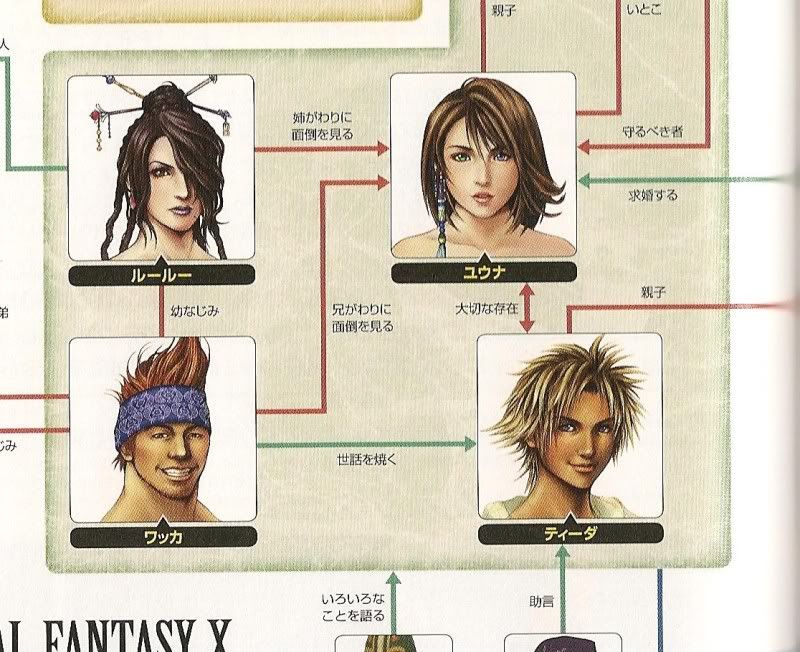LHYeung has some better pictures from the post card book on his site -- though, sadly, not one of the Zack & Aerith page:
http://ffviinovels.lhyeung.net/postcards/
Without a better scan or photo, the text is perfectly impossible to make out.
Well so far my google searches always point out taisetsuna onna as a love interest, I see bits of advice asking about the woman, love poems and there is an advertisement on learning how to protect your taisetsuna onna.
Though I'm not fully convinced that it itself is a revelation of a romantic relationship, I've never seen it used in a platonic one. Can you give some examples?
Off the top of my head, no. I agree that it definitely gets used that way most of the time, as does 大切な人-type stuff in general (that's "taisetsu na hito"; "important person"), but I know I've seen the latter construction used in advertising with reference to non-romantic love (e.g. for family members or precious friends).
The way these terms are used seems much the same way one might say "the important woman in your life" or "that important someone" in English. While it's going to refer to something romantic 9 times out of 10, it doesn't have to. At least not with the "taisetsu na hito" construction; it may well be that the other just sees no use otherwise and I'm conflating the two constructions.
Of course, in either case, with the line in question from the 10th Anniversary Ultimania, I think this is likely another case where you wouldn't find a native Japanese speaker who would read it as anything but a romantic thing. Tifa's role as "taisetsu na josei" is brought up in relation to her role as the mother of the children in the family she is said to have formed with Cloud.
If Tifa were not meant to be seen in a romantic light with regard to Cloud, this would be an altogether counterintuitive sentence construction.
Basically, no writer would write it that way -- nor have cause to mention these ideas in relation to one another -- if they didn't mean it this way.



 ), but would never really be looked to for a revelation of romantic feeling/intent on its own.
), but would never really be looked to for a revelation of romantic feeling/intent on its own.



